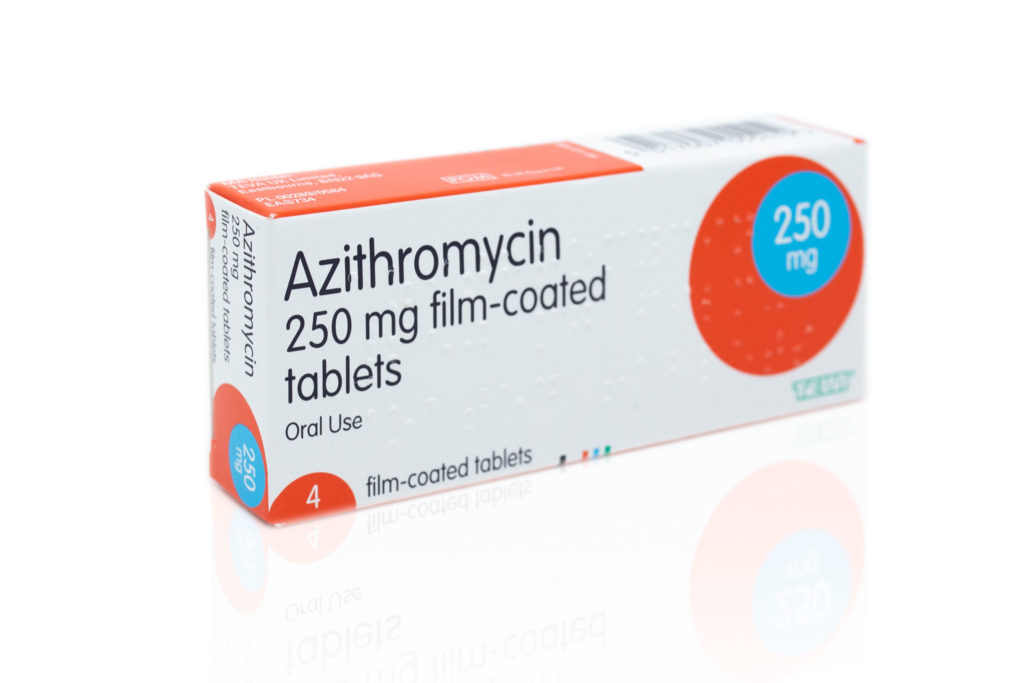The RECOVERY Trial, the world’s largest randomised trial of potential COVID-19 treatments, has found no convincing evidence that that the widely used antibiotic azithromycin has any meaningful clinical benefits for patients who have been hospitalised with COVID-19.

Azithromycin was regarded a promising treatment as it is an antibiotic that also reduces inflammation, a key feature of severe COVID-19, and also has some activity against the virus responsible for COVID-19.
In March 2020, the RECOVERY trial was established, with support from the NIHR Oxford Biomedical Research Centre (BRC), as a randomised clinical trial to test a range of potential treatments for COVID-19, including azithromycin. More than 20,000 patients have been enrolled in the RECOVERY trial so far across 176 NHS hospitals in the UK.
The azithromycin arm of the trial was closed on 27 November since, in the view of the Trial Steering Committee, sufficient patients had been enrolled to establish clearly whether or not the drug had a meaningful benefit among patients hospitalised with COVID-19.
A total of 2,582 patients were randomised to azithromycin and compared with 5,182 patients randomised to usual care alone. Patients entered the study an average of eight days after the onset of symptoms. Follow-up is complete for 73% of the participants and will be fully complete by the end of December.
A preliminary analysis, published as a pre-print on medRxiv, showed no significant difference in the primary endpoint of 28-day mortality. There was also no evidence of beneficial effects on the risk of progression to mechanical ventilation or length of hospital stay. The results were consistent in different subgroups of patients.
Full results will be made available as a peer-reviewed publication once follow-up has been completed for all participants.
The trial did not study patients in the community and so cannot make conclusions about the effectiveness of azithromycin outside the hospital setting.
Peter Horby, Professor of Emerging Infectious Diseases and Global Health in the University of Oxford’s Nuffield Department of Medicine and Chief Investigator for the trial, said: “Azithromycin has been widely used to treat COVID patients because of its theoretical potential to reduce lung inflammation. Our results show very clearly that for patients hospitalised with COVID-19 azithromycin is not an effective treatment.
“While that is disappointing, it is nonetheless an important result that will guide clinical care around the world. Looking ahead, RECOVERY continues to study several promising treatments, including convalescent plasma and Regeneron’s antibody cocktail targeted at the virus. Further results are likely over the next couple of months.”
The trial’s Deputy Chief Investigator, Martin Landray, Professor of Medicine and Epidemiology at the university’s Nuffield Department of Population Health and the Oxford BRC’s Theme Lead for Clinical Informatics and Big Data, said: “We have seen time and again during this epidemic the importance of large randomised clinical trials in determining which of the many promising treatments deliver real benefits for patients.
“Once again, we thank the thousands of NHS doctors, nurses, pharmacists, and research staff who have contributed to the RECOVERY Trial and the quest for knowledge about how best to reduce the terrible burden of this disease.
“Above all we must thank the 20,000 patients who have taken part in this extraordinary and truly world-leading effort. The improved care of COVID patients today is thanks to the selfless contribution of RECOVERY participants in the past – and in turn, the care of patients tomorrow will be better as a consequence of those volunteering today. Thank you.”
Find out more about the RECOVERY Trial.
The trial continues to study the following treatments, each compared with usual standard of care alone:
- Tocilizumab (an anti-inflammatory treatment given by injection)
- Convalescent plasma (collected from donors who have recovered from COVID-19 and contains antibodies against the SARS-CoV-2 virus)
- Regeneron’s antibody cocktail (a combination of monoclonal antibodies directed against coronavirus)
- Aspirin (commonly used to thin the blood)
- Colchicine (a commonly used anti-inflammatory drug).
The azithromycin arm is now the fourth result to come out of the RECOVERY trial. The trial previously showed that neither hydroxychloroquine nor lopinavir (a treatment for HIV) are effective in this population. By contrast, it showed very clearly that dexamethasone reduces the risk of death by about one-third among patients receiving ventilation and by one-fifth in those requiring oxygen alone (but with no benefit among those not requiring respiratory support).